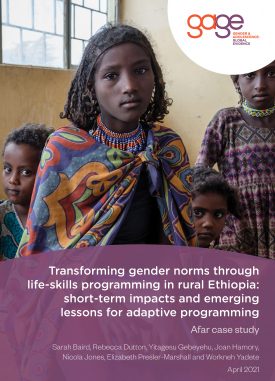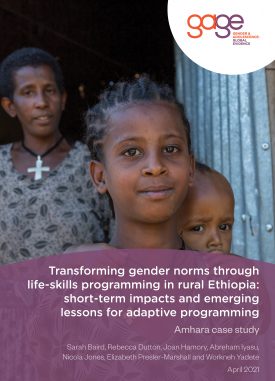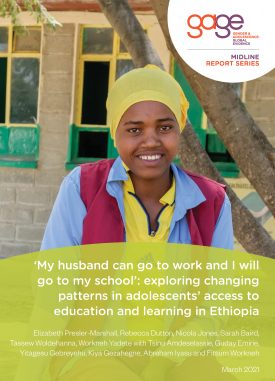Life-skills programming that takes a gender-responsive approach is well-positioned to both build adolescents’ skills and to empower them more broadly. Reviews of the impacts of club-based life-skills interventions in low- and middle-income countries (LMICs) find that they improve adolescents’ educational, mental health and psychosocial outcomes, but also highlight important evidence gaps, particularly for interventions targeting very young adolescents (VYA; aged 10–14 years).
The implementation and evaluation of Act With Her-Ethiopia (AWH-E) programming, targeting three diverse populations in Ethiopia, provides a critical opportunity to fill this evidence gap and contribute to understanding of ‘what works’ to influence adolescents’ trajectories. AWH-E is a safe spaces curriculum-based group programme for girls aged 11–13, with additional programming for boys and adolescents’ support systems (including parents, community leaders and other community members) and system-strengthening initiatives.
Suggested citation
Baird, S., Dutton, R., Hamory, J., Iyasu, A., Jones, N., Presler-Marshall, E. and Yadete, W. (2021) Transforming gender norms through life-skills programming in rural Ethiopia: short-term impacts and emerging lessons for adaptive programming. Oromia case study. Report. London: Gender and Adolescence: Global Evidence. (https://www.gage.odi.org/publication/transforming-gender-norms-through-life-skills-programming-in-rural-ethiopia-short-term-impacts-and-emerging-lessons-for-adaptive-programming-oromia-case-study/)


